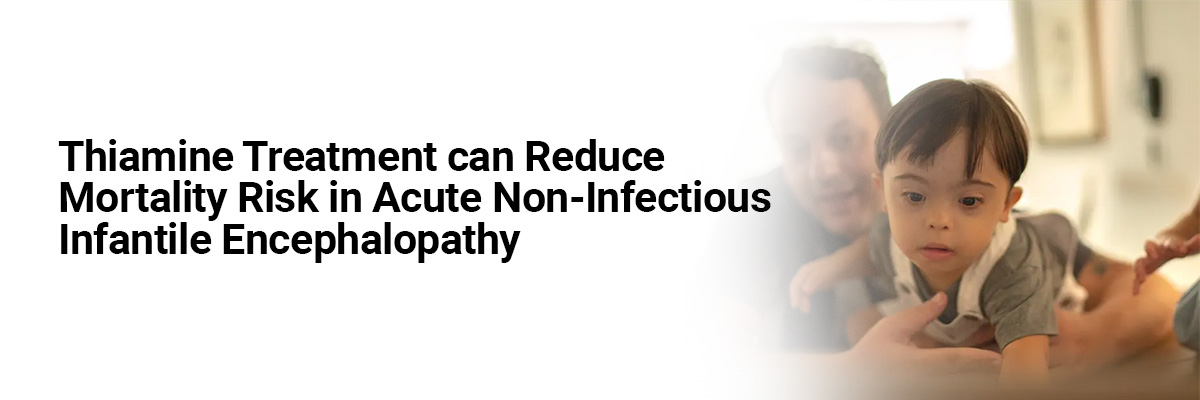
 IJCP Editorial Team
IJCP Editorial Team
Thiamine Treatment can Reduce Mortality Risk in Acute Non-Infectious Infantile Encephalopathy
A new
study aimed to characterize clinical and investigational findings and assess
the impact of thiamine treatment on mortality in patients with acute non-infectious
encephalopathy admitted to a Sikkim hospital from 2019-2021.
This was a
retrospective study that included 37 patients (median age 4 months) – 62.2%
were males, and 75% were exclusively breastfed infants. Ophthalmologic and
respiratory abnormalities were observed in 67.6% and 89.2% of patients,
respectively, with common multisystem involvement.
Neuroimaging
depicted bilateral basal ganglia involvement in 75% of the cases, and one
infant had confirmed biochemical thiamine deficiency. It was noted that thiamine
treatment was associated with significantly lower mortality, with none of the
11 treated patients succumbing, compared to a 76.9% case fatality rate in the
untreated group.
Thus, it was inferred that thiamine use was linked to decreased mortality among patients with acute non-infectious encephalopathy and bilateral basal ganglia involvement.
Source: Gurung B,
Bhutia TD, Chettri S, Mummadi MK, Bondre VP. Indian Journal of Pediatrics. 2023
Oct 26:1-3.

IJCP Editorial Team
Comprising seasoned professionals and experts from the medical field, the IJCP editorial team is dedicated to delivering timely and accurate content and thriving to provide attention-grabbing information for the readers. What sets them apart are their diverse expertise, spanning academia, research, and clinical practice, and their dedication to upholding the highest standards of quality and integrity. With a wealth of experience and a commitment to excellence, the IJCP editorial team strives to provide valuable perspectives, the latest trends, and in-depth analyses across various medical domains, all in a way that keeps you interested and engaged.




















Please login to comment on this article